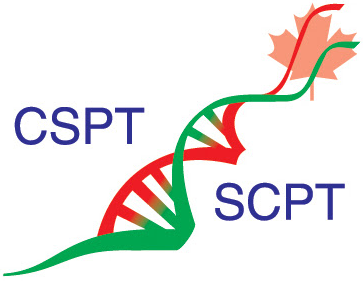Haplotype
Definition:
A Haplotype is a set of DNA variations, or polymorphisms, that tend to be inherited together. This can be a combination of alleles in a single gene, or it can be alleles across multiple genes. It could be single nucleotide polymorphisms that are not in a gene but are in-between genes. There are variations in the DNA that are so close together that they tend not to recombine, and thus tend to be passed down through the generations together.
Relevance:
Understanding haplotypes is important in understanding when and how genetics determines drug disposition and response, notably when specific haplotypes are associated with altered outcomes in drug efficacy and safety. An example is the risk for hearing loss associated with cisplatin chemotherapy which is associated with specific haplotypes that sharply increase risk as demonstrated below.

Ross CJD et al. Genetic variants in TPMT and COMT are associated with hearing loss in children receiving cisplatin chemotherapy. Nature Genetics 2009, 41(12), 1345-9. https://doi.org/10.1038/ng.478
Examples of the Impact of Specific Haplotypes on Drug Therapy:
|
Drug
|
Haplotype
|
Clinical Consequences
|
|
Simvastatin
|
521T > C variant of SLCO1 B1
|
Patients with this haplotype have reduced OATP1B1 activity that is responsible for higher blood concentrations of simvastatin and increased risk of simvastatin toxicity
|
|
Carbamazepine
|
HLA-B*15:02
|
Patients who are Han Chinese and who have this haplotype are at increased risk for Stevens-Johnson Syndrome associated with carbamazepine therapy
|
|
Cisplatin
|
Thiopurine S-methyltransferase (rs12201199)
and
Catechol-O-methyl transferase (rs9332377)
|
Patients with these gene variations are at significantly higher risk for cisplatin-induced hearing loss
|
| Allopurinol |
HLA-B*5801 |
Patients with this haplotype are at a significantly increased risk for allopurinol-induced hypersensitivity adverse drug reactions |
Teaching tips:
Considerations around how haplotypes may be used to teach about:
● Providing insights into mechanisms underlying variation in drug response and clearance
● Understanding how genetic and other factors including concurrent therapy impact on drug efficacy and response
● Developing a management plan which includes consideration of the genomic make-up of the patient
Suggested articles on this topic:
- van den Lee M et al. Technologies for pharmacogenomics: A review. Genes 2020, 11, 1456. doi:10.3390/genes11121456
- This manuscript reviews the various approaches available for haplotype identification using a range of technologies
- Lakiotaki K et al. ePGA: A Web-Based Information System for Translational Pharmacogenomics. PLOS ONE 2016, 11(9), e0162801. https://doi.org/10.1371/journal.pone.0162801
- This manuscript describes matching of haplotypes to variations in drug metabolism using a web-based system
- Rodin DM, McLeod HL, Relling MV et al. Pharmacogenomics. Lancet 2019, 394, 5221-32.
- This review addresses the role of genetic variations in determining beneficial and adverse effects of drugs via effects on pharmacokinetics and pharmacodynamics
Linked terms: Clinical Pharmacology, Pharmacogenetics, Pharmacogenomics, Allele, Therapeutic choices, Optimal therapy
Return to Glossary

